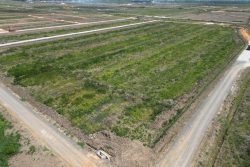If the recent revelations of the United Nations Department of Economic and Social Affairs (UN/DESA) are anything to go by, the impact of COVID-19 will extend way beyond human casualties, impacting on the quality of human life for years to come.
UN/DESA’s mid-October Policy Brief, titled “the long-term impact of COVID-19 on poverty”, asserts that the effects of the pandemic will reach back several years to drastically undermine global efforts to realize the 2030 timeline for meeting the poverty alleviation targets set in the United Nations Social Development Goals (SDGs).
Whereas in its mid-2020 update on the World Economic Situation and Prospects UNDESA had estimated that more than 34 million people will slide into poverty this year alone, the World Bank is now predicting a more apocalyptic scenario with its own figure of between 71 million and 100 million people. Were this figure to turn out to be true, it will effectively erase almost all progress made in the last five years in the fight against extreme poverty. UNICEF and Save the Children, meanwhile, are warning that the pandemic could push a further 86 million children into poverty.
Meanwhile, as the pandemic continues to spread across developing countries, the eradication of extreme poverty, currently affecting around 680 million people, seems nearly utopian.
While acknowledging that extreme poverty is driven by many factors, UN/DESA says that the scourge of COVID-19 and the attendant plummeting economic growth is increasing poverty and exacerbating existing inequalities.
“Factories are shuttered, domestic demand is curtailed, investments are postponed, and global trade has fallen sharply, thus jeopardizing innumerable jobs.”
The study says that at the household level, “unemployment and loss of income, and high health care expenditures are the most prominent reasons for people to slip into poverty. As such, people living in countries with a large informal sector, with poor or inaccessible healthcare and a weak social protection system are particularly at risk”.
Meanwhile, UN/DESA shares the view that while almost every sector has felt the effects of COVID-19, tourism and manufacturing stand out on account of their importance to providing employment for low-skilled people in developing countries.







